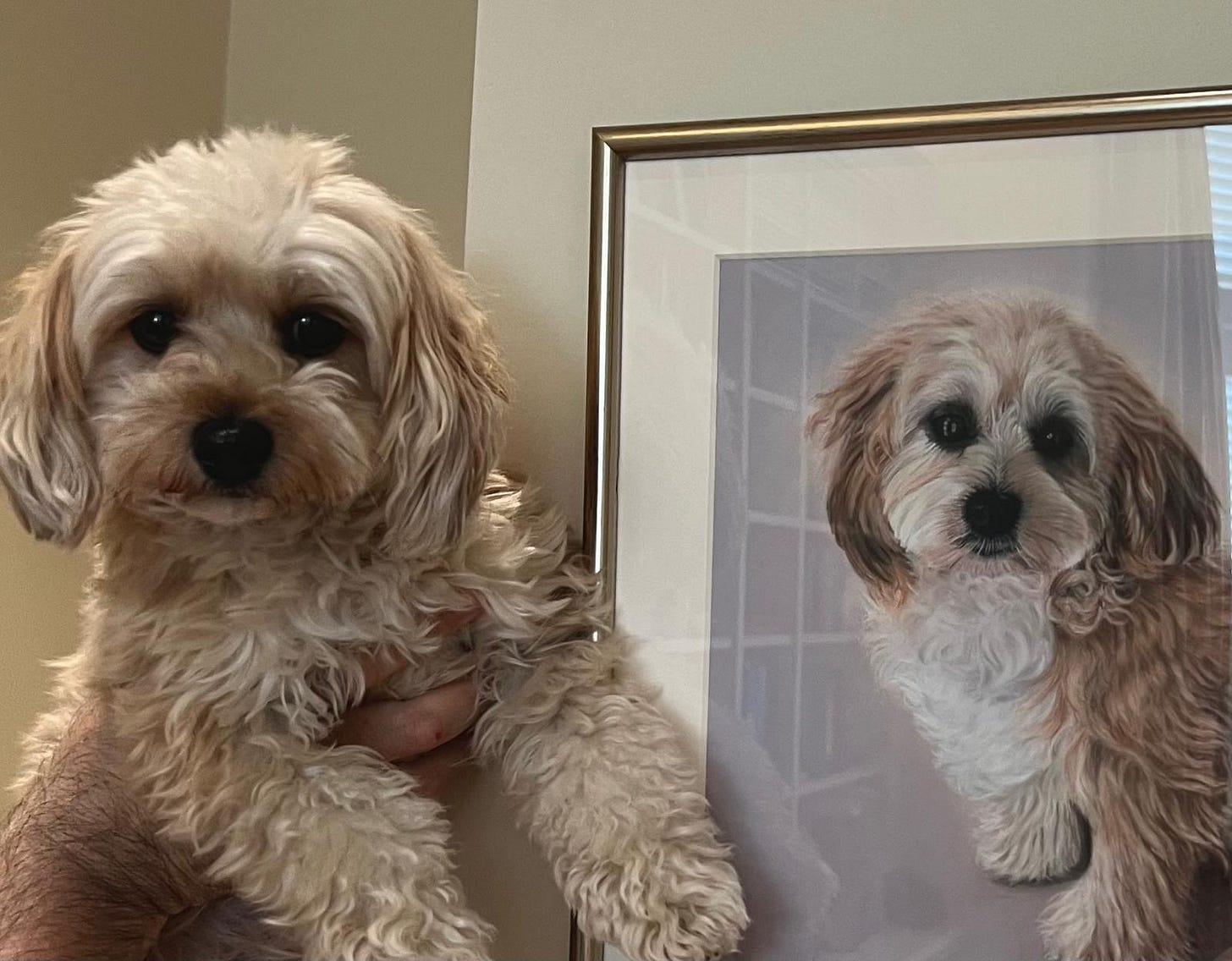A lovely little Havanese-poodle puppy called Ziggy (a girl, now 3) became part of our family during lockdown. Dog-lovers know all too well what depths of unqualified affection these animals evoke, and the unconditional love they give. Ancient Greeks and Romans clearly also knew the feeling.
There’s one poem in particular that makes me think of Ziggy when I read it: Martial’s lines about Issa, Publius’s little dog (Book 1, poem 109). The poem is in continuous hendecasyllables (my post of Jan 2024 gives details of this meter), but falls naturally into three stanzas. The last seven lines show that Martial (writing around AD 80) was as interested in praising the ability of an artist to make a lifelike likeness of Issa as he was in describing the adorable puppy.
Martial starts by comparing Issa to the sparrow (passer) that his poetic predecessor Catullus (c. 50 BC) had written about, so beloved of that poet’s girlfriend Lesbia (I posted about her in Feb 2024).
Issa is cheekier than Catullus’s little bird,
Issa is purer than a ringdove’s kiss unheard.
Issa is lovelier than every kind of girl,
Issa is dearer than the most exotic pearl!
Issa is the puppy of Publius’s choice,
with a sweet little growl just like a human voice.
She sometimes feels down, and she sometimes feels up;
just watch how she nestles on her master’s lap
with snoring so soft you won’t notice her nap.
If nature should call, nothing touches the sheet:
she’ll paw at you gently with her little feet,
and ask to get down or put back on her seat.
She’s so unacquainted with the facts of life,
she won’t find a mate (though she’d be a sweet wife).
To try to keep something of her when she died,
a picture for Publius was made on the side.
The image came out as so good a depiction
that Issa herself can’t compete with the fiction!
If you place the pup alongside to compare
you might think that two living puppies are there,
or else that an artist has painted the pair.
The Latin runs:
Issa est passere nequior Catulli, Issa est purior osculo columbae, Issa est blandior omnibus puellis, Issa est carior Indicis lapillis, Issa est deliciae catella Publi: hanc tu, si queritur, loqui putabis. Sentit tristitiamque gaudiumque; collo nixa cubat capitque somnos, ut suspiria nulla sentiatur. Et desiderio coacta ventris gutta pallia non fefellit ulla, sed blando pede suscitat toroque deponi monet et rogat levari. Castae tantus inest pudor catellae, ignorat Venerem; nec invenimus dignum tam tenera virum puella. Hanc ne lux rapiat suprema totam, picta Publius exprimit tabella, in qua tam similem videbis Issam, ut sit tam similis sibi nec ipsa! Issam denique pone cum tabella: aut utramque putabis esse veram, aut utramque putabis esse pictam.
I wrote a little more about ancient love of dogs here (this was written before I had translated the poem on Issa, and omits the stanza about the painting):
https://engelsbergideas.com/notebook/the-ancients-loved-dogs-too/





Lovely rendition, Armand. Would the first five lines begin better as "Issa's..." (to capture Martial's elision).